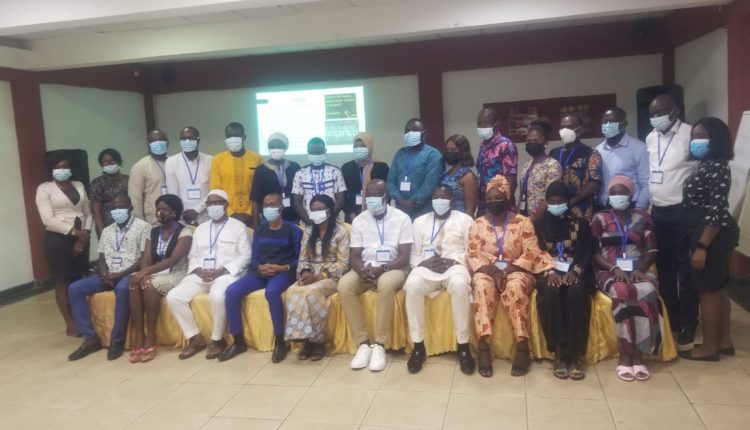The Ashesi youth peacebuilding project last Wednesday and Thursday – 11th and 12th August 2021, opened a two-day youth workshop in Accra to educate the youth on how to help promote development in the country.
The workshop, funded by Ashesi University, is aimed at effecting social change in Ghana by building the capacities of young people and equipping them with skills necessary to be agents of positive change to enhance development.
A lecturer at the University and ADR expert, Dr. Enyonam Canice Kudonoo, speaking on the theme “Peacebuilding for conflict prevention and management in the Greater Accra Region: The role of youth leaders” said due to the lack of deliberate policy to convert the energies of the youth into constructive enterprises, most youth had become unemployed citizens.
She said most youth in Ghana lacked the zeal to achieve their visions explaining that Ghanaian youth hardly have visions.
She urged Ghanaian youth to be disciplined, obedient, have self-control and protect the state’s property.
According to her, at this stage of Ghana’s development, acquiring useful skills and positive mindset will not only empower one with employable skills but also help in developmental efforts.
The vision of the workshop was to envision Ghanaian communities where young people are empowered to take a leading role in bringing about social change.
The workshop funded by Ashesi University forms part of its Corporate Social Responsibility to instil ethical and entrepreneurial values in young people.
The participants, who were selected from youth organizations, churches, mosques, and educational institutions in the Greater Accra Region, also included Assemblymen and women from some communities.
The selected youth leaders were preached on the importance of dialogue for dispute prevention that leads to peaceful co-existence and sustainable development in the region.
The Ashesi Youth Peacebuilding Project seeks to make sure youth leaders in various communities are empowered with skills that will help to influence in their community to become influential ambassadors and agents of change.
The program highlighted key principles in dialogue (listening, respecting, suspending, voicing, and transparency) that promotes non-violence (positive) and consensus-building for dispute prevention, among others.


Comments are closed.